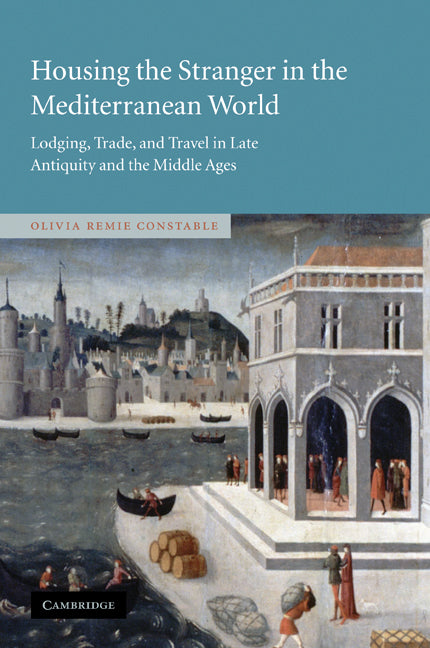Freshly Printed - allow 8 days lead
Couldn't load pickup availability
Housing the Stranger in the Mediterranean World
Lodging, Trade, and Travel in Late Antiquity and the Middle Ages
A study of the evolution of hostelries for travellers throughout the medieval Mediterranean world.
Olivia Remie Constable (Author)
9780521109765, Cambridge University Press
Paperback / softback, published 30 April 2009
440 pages, 11 b/w illus. 4 maps
22.9 x 15.2 x 2.5 cm, 0.64 kg
"This book is filed with close, astute studies of local trends in parts of the Mediterranean and does an exellent job of balancing regional and general developments." - Steven A. Epstein, University of Kansas
The Greek pandocheion, Arabic funduq, and Latin fundicum (fondaco) were ubiquitous in the Mediterranean sphere for nearly two millennia. These institutions were not only hostelries for traders and travelers, but also taverns, markets, warehouses, and sites for commercial taxation and regulation. In this highly original study, Professor Constable traces the complex evolution of this family of institutions from the pandocheion in Late Antiquity, to the appearance of the funduq throughout the Muslim Mediterranean following the rise of Islam. By the twelfth century, with the arrival of European merchants in Islamic markets, the funduq evolved into the fondaco. These merchant colonies facilitated trade and travel between Muslim and Christian regions. Before long, fondacos also appeared in southern European cities. This study of the diffusion of this institutional family demonstrates common economic interests and cross-cultural communications across the medieval Mediterranean world, and provides a striking contribution to our understanding of this region.
Introduction: a culture of travel: words institutions, and connections
1. Accepting all comers': a cross-cultural institution in late antiquity
2. the transition from Byzantium to the Dar al-Islam
3. Commerce, charity, community, and the funduq
4. Colonies before colonialism: western Christian trade and the evolution of the fondaco
5. Conquest and commercial space: the case of Iberia
6. Fondacos in Sicily, south Italy, and the Crusader states
7. Changing patterns of Muslim commercial space in the later middle ages
8. Christian commerce and the solidification of the fondaco system
9. The fondaco in Mediterranean Europe
Conclusion: a changing world: new peoples and institutions in the early modern Mediterranean
Bibliography
Index.
Subject Areas: Economic history [KCZ], Islamic studies [JFSR2], Social & cultural history [HBTB], Early history: c 500 to c 1450/1500 [HBLC], European history [HBJD]


